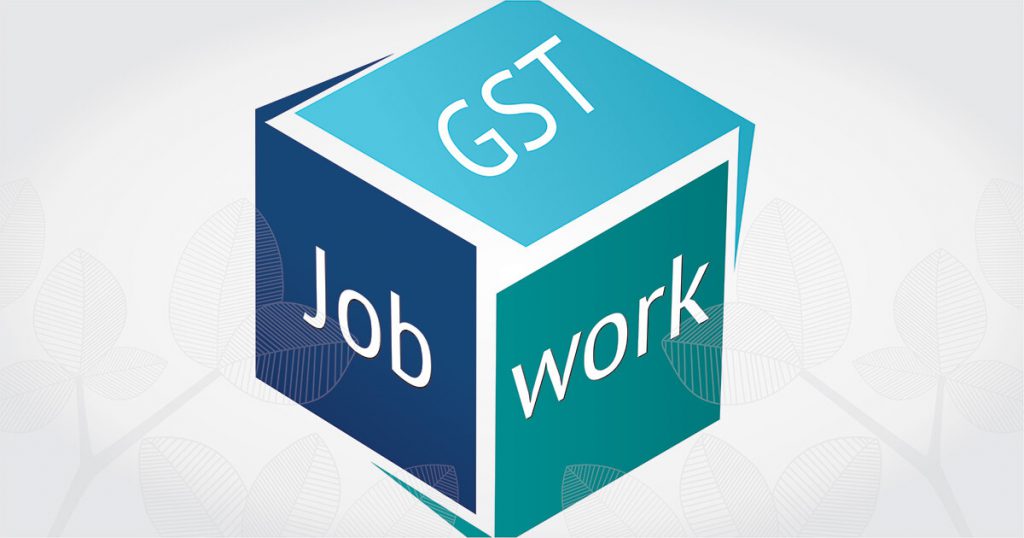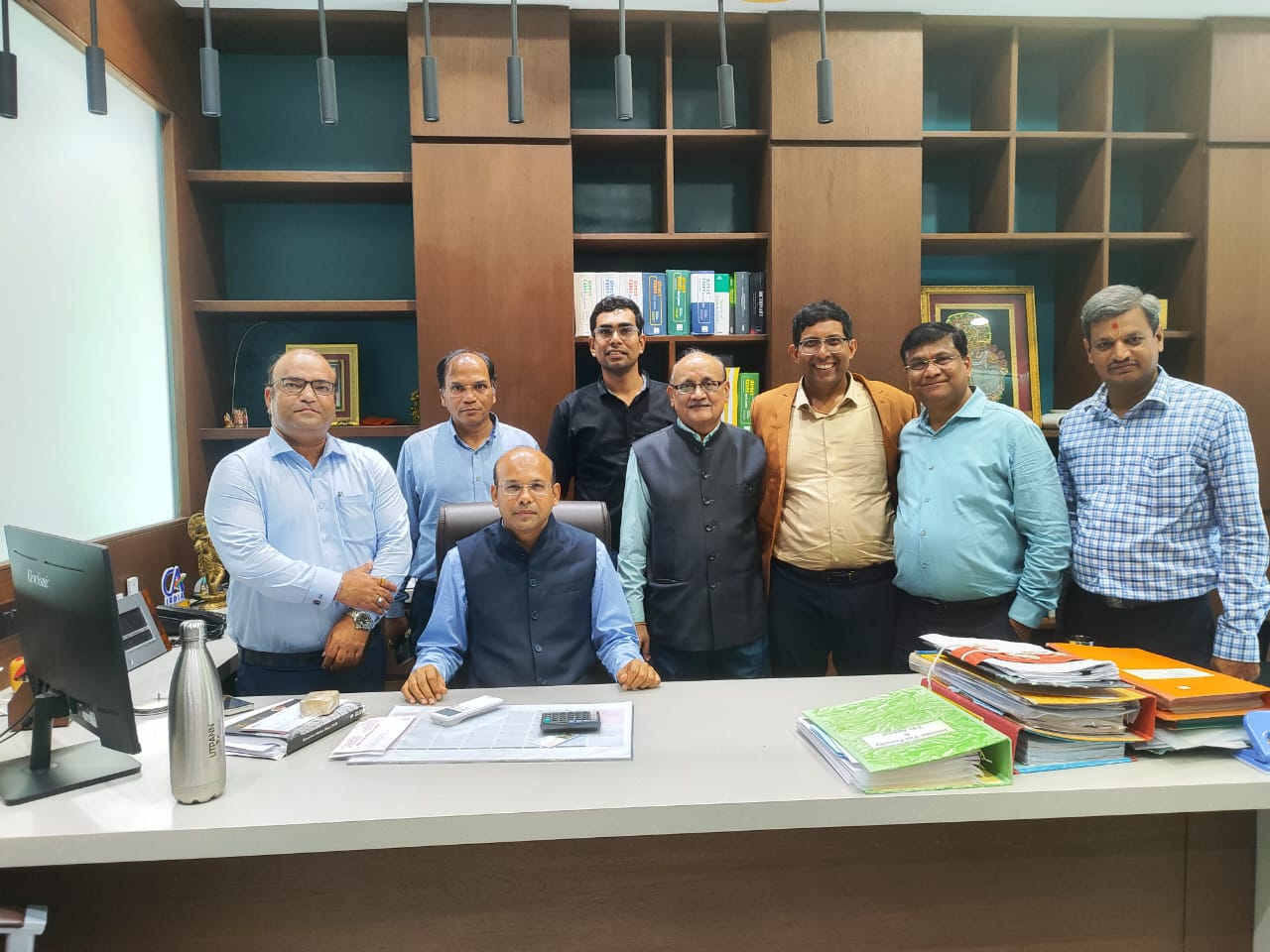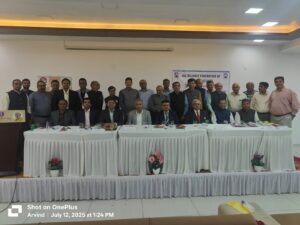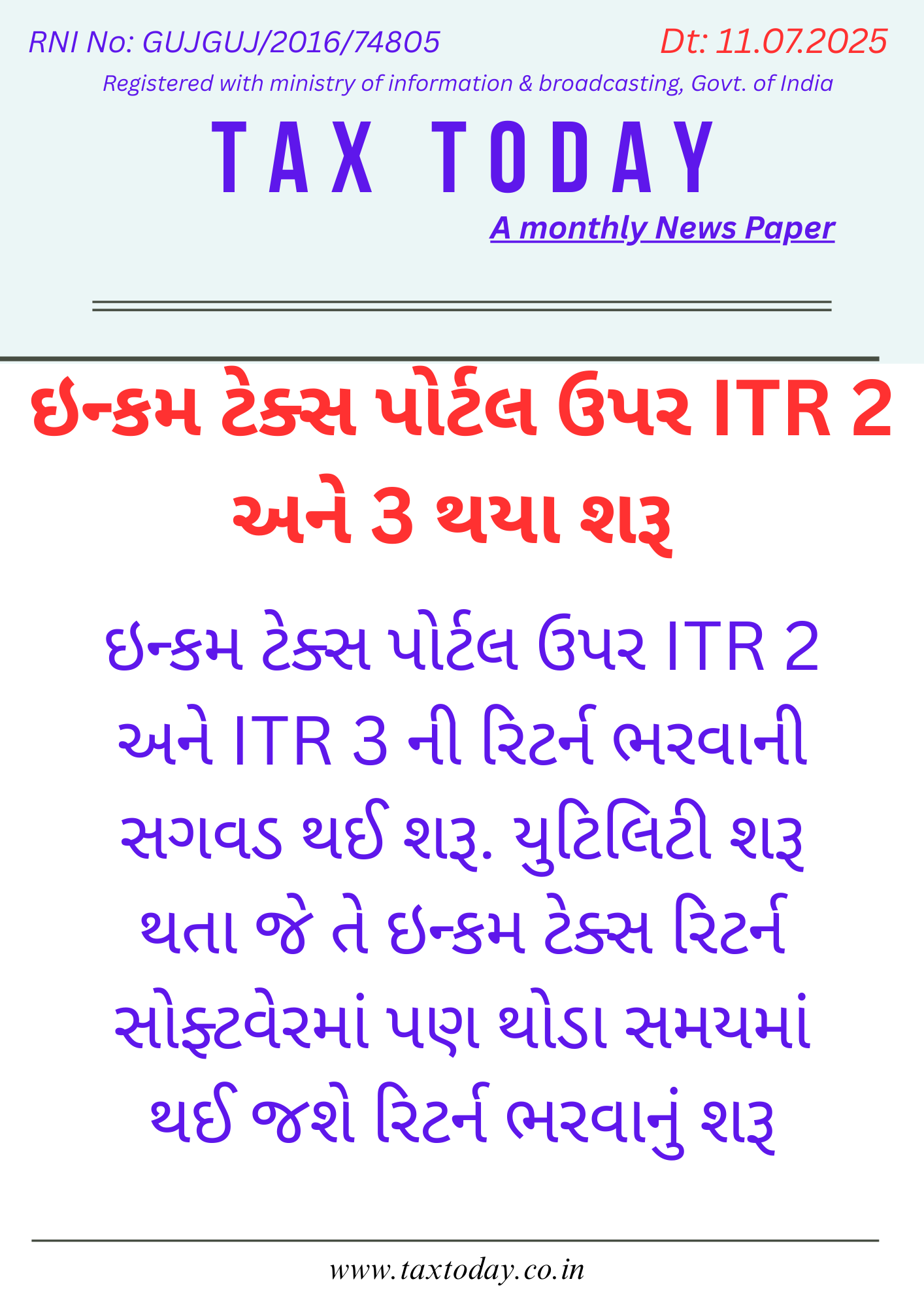Provisions of Job Work under G.S.T.: Simplified

Dhaval H. Patwa
Advocate, Surat
Under GST law, GST is leviable when any transaction falls under the scope of supply. In case of job work process, CGST Act permits to do the transaction without paying GST with certain conditions. Therefore it can be said that when someone send his goods for job work, the transaction between concerned persons would not amounts to supply and when all conditions are getting satisfied no GST is payable on that transaction. Generally a small business person having limited capacity to invest funds in his business, starts business by way of job work by performing different types of work on another person’s goods. GST Act provides different provisions for job work process. Here I have tried to analyze different provisions relating to job work for better understanding.
1. Definition of Job work.
2. Liability to get registered by Job worker.
3. Transitional provisions relating to Job work.
4. Procedure for supplying goods to Job worker.
5. Documents to be prepared for the transaction of Job work.
6. ITC related provisions for Job work.
7. Provisions of e-way bill in case of Job work.
8. Place of supply in case of Job work.
9. Job work V/s. Manufacturing.
10. Rate of tax.
1. Definition of Job work :
Job work defines under section 2(68) of CGST Act as under :
“Job work” means any treatment or process undertaken by a person on goods belonging to another registered person and the expression “Job worker” shall be construed accordingly.
Looking to the above definition, we can say that job worker is a person who is doing job work on other registered person’s goods.
For the purpose of Job work, Principal is not defined under CGST Act but as per the Circular No.38/12/2018 dtd.26.03.2018, “Principal” is the registered person on whose goods (inputs or capital goods) job work is performed.
So main ingredients of the definition of Job work is –
– If some treatment or process is undertaken by a job worker on goods belonging to another registered person will be treated as job work.
– Ownership of goods should be retained with principal.
– Principal should be a registered person.
– If a job worker performing any treatment or process on an unregistered person’s goods then it will not be treated as job work and the provisions of CGST Act may affects differently to a job worker in every stage of his business.
Further as per schedule II Entry No.3 –
“Any treatment or process which is applied to another person’s goods is a supply of services”. Hence all provisions relating to services are applicable to job work.
2. Liability to get registered by Job worker :
As job work is considered as service, the job worker is liable to get registered as and when his aggregate turnover to be computed on all India basis exceeds Rs.20 lakhs (Rs.10 lakhs in special category states) during the financial year.
As per Section 24(i), person making any inter state taxable supply is compulsorily liable to take registration and in that context it is mandatory to take registration for job worker when principal and job worker situated in different states. But exemption given from registration in case the aggregate turnover of the inter state supply of taxable services does not exceed the threshold limit by Notification No.10/2017-Integrated Tax dtd.13.10.2017. Hence according to this notification and further clarified by Circular No.38/12/2018 dtd.26.03.2018, though principal and job worker situated in different states, job worker is not liable to get registered until his aggregate turnover exceeds threshold limit.
Further as per explanation (ii) of Section 22 of CGST Act,
“the supply of goods, after completion of job work, by a registered job worker shall be treated as the supply of goods by the principal and the value of such goods shall not be included in the aggregate turnover of the registered job worker”. Hence value of supply of goods supplied by principal shall not be included in the aggregate turnover of the registered job worker.
But when unregistered principal send goods for job work to an unregistered job worker, then the value of goods which is sent back after completion of job work by job worker will be included in the aggregate turnover of the job worker. In this case job worker’s turnover may cross the threshold limit for registration and liable to get registered.
3. Transitional provisions relating to Job work :
Transitional provisions regarding job work are narrated in Sec.141 of the CGST Act Sec.141 provides that where any inputs received by principal on his place of business had been removed as such or removed after being partially processed to a jobworker for further processing, testing, repair, reconditioning or any other purpose before commencement of GST Law and inputs are returned to the said business place on or after commencement of GST Law, no tax shall be payable if such inputs, after completion of the job work or otherwise, are returned to the said place within 6 months ( can be extended by 2 months by commissioner on sufficient cause ) from the commencement of GST Law.
Further as per section 141(4), tax shall not be payable if the principal & job worker submits a declaration of the stock details of the inputs, semi-finished goods or finished goods held by job worker on the commencement day of GST Law in Form Tran-1 as per Rule 119 of the CGST Rules.
If such inputs sent is not received back within stipulated time of 6 months (or extended time period of 2 months), then Input Tax Credit shall be liable to be reversed.
4. Procedure for supplying goods to Job worker:
Section 143 deals with job work procedure which is more clarified by Circular No.38/10/2018 dtd.26/03/2018.
As per section 143 of CGST Act, a registered person (principal) may under intimation and subject to such conditions as may be prescribed, send any inputs, semi-finished goods or capital goods without payment of tax to a job worker for job work and from there subsequently send to another job worker and likewise.
Explanation to Section 143 provides that if any intermediate goods arising during any treatment or process, then it is also considered as inputs. Hence any treatment or process generates any intermediate goods, it will also be considered as good as inputs for the job work purpose. The pin points of provision under Section 143 are as under :
Intimation :
• Here Form GST ITC04 will serve the purpose of intimation as per Rule 45(3) of CGST Rules which is required to be filed by 25th day of the month succeeding the quarter.
Conditions :
• The principal can send inputs / capital goods (including intermediate goods) for job work without payment of GST but the same should be received back within 1 year in case of inputs & 3 years in case of capital goods. (The period of 1 or 3 years shall be extended for further 1 or 2 years respectively by commissioner on sufficient cause).
• period of 1/3 years will be calculated from the date of issue of delivery challan in case of goods sent by principal to job worker.
• when goods sent to job worker directly from the business premises of the supplier, the period of 1/3 years shall be counted from the date of receipt of inputs/ capital goods by the job worker.
• when such inputs/capital goods are further sent by one job worker to another, then the entire process of job work from more than one job worker shall be considered for computing the period of 1/3 year.
• If the inputs or capital goods are not received back after completion of job work within specified time period of 1/3 years, the same shall be treated as “supply” from the original date when the said inputs or capital goods are sent out for job work.
As per the clarificatory Circular No.38/12/2018 dtd.26.03.2018, the principal has to issue tax invoice for the said supply considering the value shown in job challan while sending goods for jobwork and shall be declared in form GSTR 1 as supply. The principal shall be liable to pay the tax along with applicable interest from the date when the goods have been sent first for Jobwork.
So here we can say that when registered principal send his goods to job worker for job work process, he can send without payment of GST and the same would not be treated as supply but if the said goods not returned to the principal after completion of job work within stipulated time, it will be treated as supply by principal to the job worker and GST is payable on it by the principal.
Where the goods (input or capital) should be returned after completion of job work –
• Goods (Input/capital) can be returned after completion of job work to the place of business of the principal or any of the places registered as additional place of business.
• After completion of job work, goods (input / capital) can be directly supplied from the place of the job worker to the principal’s customer if –
o The job worker is registered or
o The job worker is not registered but his place of business is declared as additional place of business by the principal.
Exclusion :
• As per Sec.143 of the CGST Act, the principal can send moulds and dies, jigs and fixtures or tools for job work without payment of GST & the time limit of 1/3 years will not apply to the said goods.
Disposal of Waste and Scrap :
As per Sec.143(5) of the CGST Act, while performing any jobwork on goods, if any waste or scrap is generated, it can be supplied in any of the following manners :
Job worker
Registered Unregistered
Can be supplied by him on Can be returned back Principal can directly Payment of applicable tax to the principal and supply to his customer
Principal can supply from the job worker’s by paying applicable place and pay tax at tax on it. applicable rate of tax.
Responsibility of Principal:
Sec. 143(2) requires that the principal should maintain proper accounts and records of the inputs or capital goods sent on job work or returning back after completion of job work so principal is responsible for keeping proper accounts of inputs or capital goods being sent on job work or returned back after completion of job work.
5. Documents to be prepared for the transaction of Jobwork:
Principal can send goods for job work without payment of tax for which he has to issue delivery challan as per Rule 45 with prescribed details as per rule 55 of CGST Rules
As per Circular No. 38/12/2018 dtd. 26/03/2018, when movement of goods started from the place of business of the supplier directly to the place of business of the job worker, a copy of invoice containing –
– Name and address of the principal,
– Name and address of the job worker as consigner as per rule 46(o) of the CGST rules
should be issued by the supplier.
The principal shall issue the job challan under Rule 45 of the CGST Rules and send the goods to the job worker directly as per above procedure. In short in this transaction “Bill to Shipped to” module should be followed.
In case of import, the goods may moved from the custom station of import to the business place of job worker with a copy of bill of entry and the principal shall issue the challan under rule 45 of the CGST rules and send the goods to the job worker directly.
Documents required to be issue in different situation of movement of goods –
Principal to job worker–
The principal have to issue delivery challan in triplicate, two copies of which may be sent to the job worker along with the goods. Then after completion of job, job worker should send one copy of the said challan along with the goods while returning them to the principal.
Job worker to another job worker –
In such circumstances, job worker has two options to send goods to another job worker:
1. The job worker may endorse challan issued by principal stating the quantity and description of goods being sent.
2. The job worker may send goods to another job worker by issuing his own job challan.
Job worker to the principal after completion of job work –
The job worker will issue job invoice for the job work done by him along with one copy of job challan received by him from the principal.
When goods returned in piece meal by the job worker –
In this case, job worker will issue a fresh challan as endorsement of challan issued by principal is not possible.
6. ITC related provisions for Jobwork:
As per Sec. 19(1) of CGST Act, the principal can avail ITC on the goods sent for jobwork to the jobworker. Even as per Sec. 19(2) and 19(5), ITC can be availed by the principal without receiving goods/capital goods to his place of business i.e. by sending goods directly to jobworker from supplier.
7. Provisions of eway bill in case of Jobwork :
As per Rule 138(1) of CGST Rules, E way bill needs to be generated where consignment value of goods exceeds Rs.50,000/- but as per 3rd proviso of Rule 138 in case of jobwork, it is mandatory to generate e way bill while making inter state movement of goods without any limit. Hence movement of goods caused for the purpose of job work and Principal and Job worker situated in different states, generation of e way bill is mandatory without any monetory limit of consignment value.
8. Place of supply in case of Job work:
In accordance with the provisions of Section 12(2) of IGST Act,
When the registered job worker and principal are situated in different states and goods are removed directly from the place of the job worker –
– If the principal and recipient are situated in same state, CGST & SGST will be leviable though job worker is situated in different state. Example : If the principal located in Gujarat, Job worker is situated in Maharastra and recipient also situated in Gujarat then the transaction will be treated as intra state transaction and CGST & SGST will be leviable by the principal though Job worker is situated in different state i.e. Maharastra.
– If the principal and recipient are situated in different state, IGST will be leviable though recipient and job worker are situated in same state. Example : If the principal is located in Gujarat, recipient is located in Maharastra and Job worker is also located in Maharastra, then transaction will be treated as inter state transaction and IGST will be leviable by the principal.
9. Jobwork V/s. Manufacturing :
Jobwork Manufacture
• Defined under section 2(68) of the Defined under section 2(72) of CGST Act. the CGST Act.
• Treatment or process performed by No such distinction.
job worker should be on another
registered person’s goods.
• After processing on goods, no new After processing on raw material
product emerging. or Inputs, it converts into new
product having different name, character and use.
10. Rate of Tax :
As per the Notification No.126/45/2019 dtd.22.11.2019, we can summarise the applicable rate of tax on jobwork process as under :
Job worker Principal Rate of Tax
Registered Unregistered 18%
Registered Registered 12%
Unregistered Registered/Unregistered GST not applicable as Job worker is not registered.






